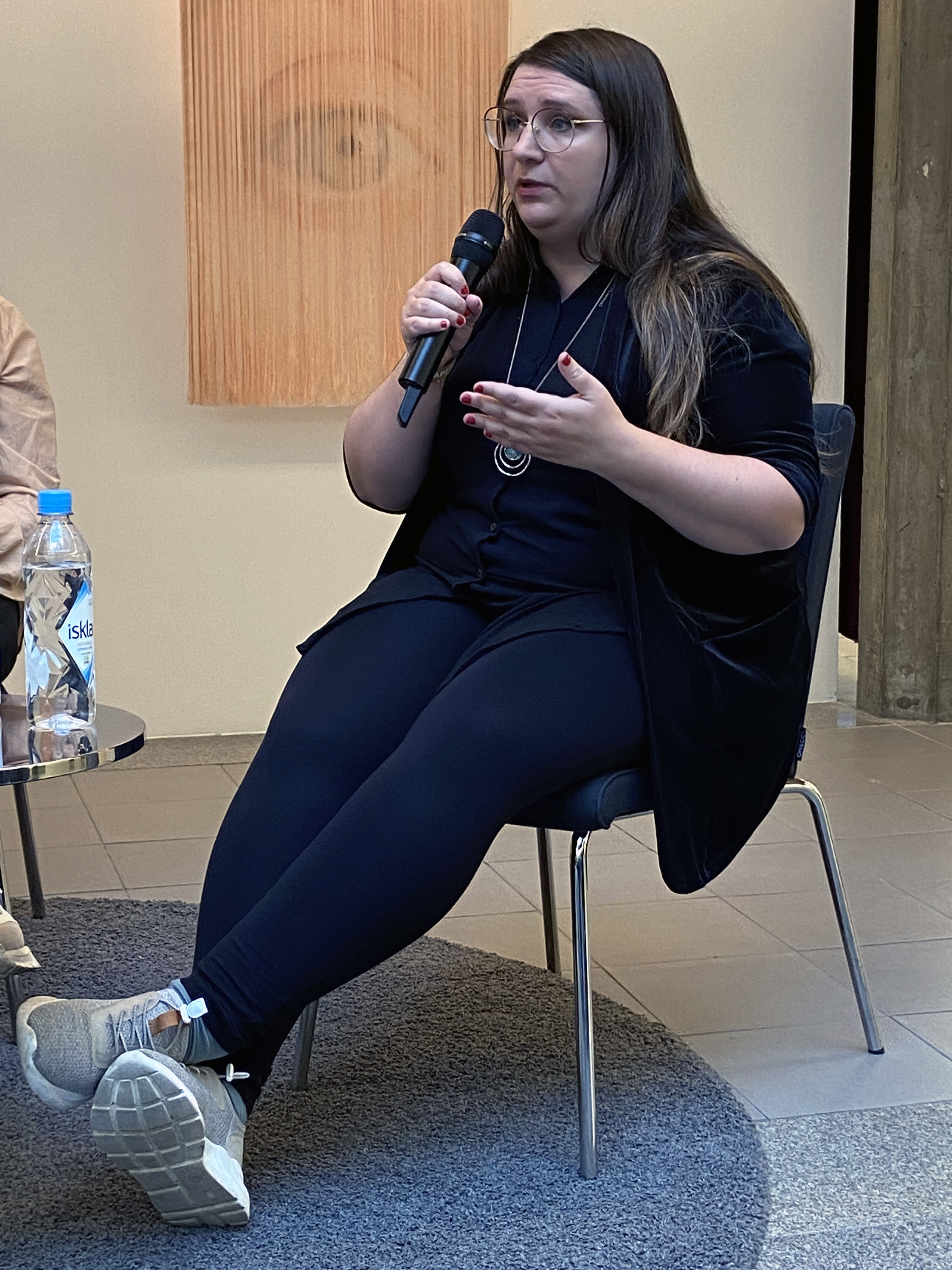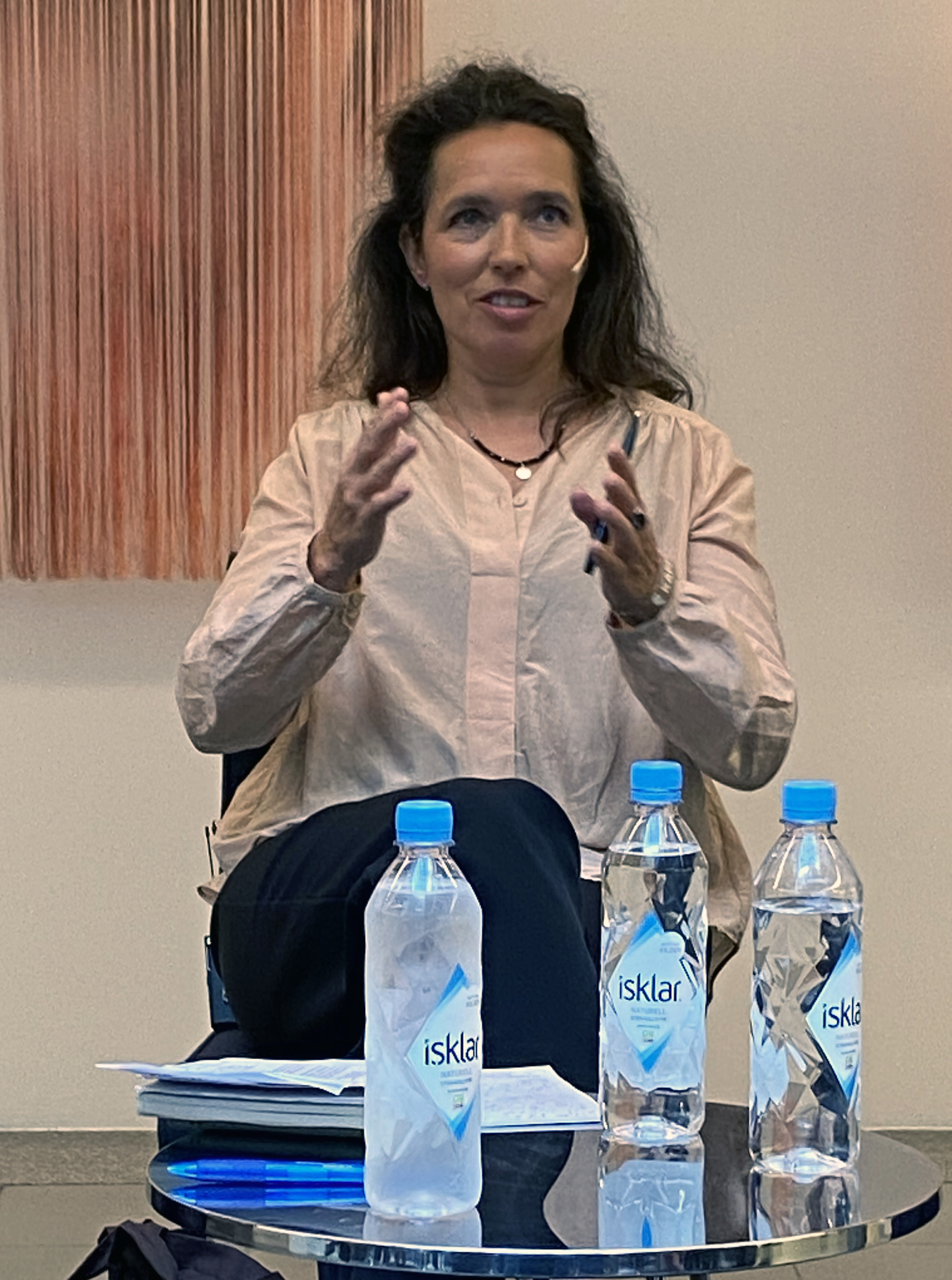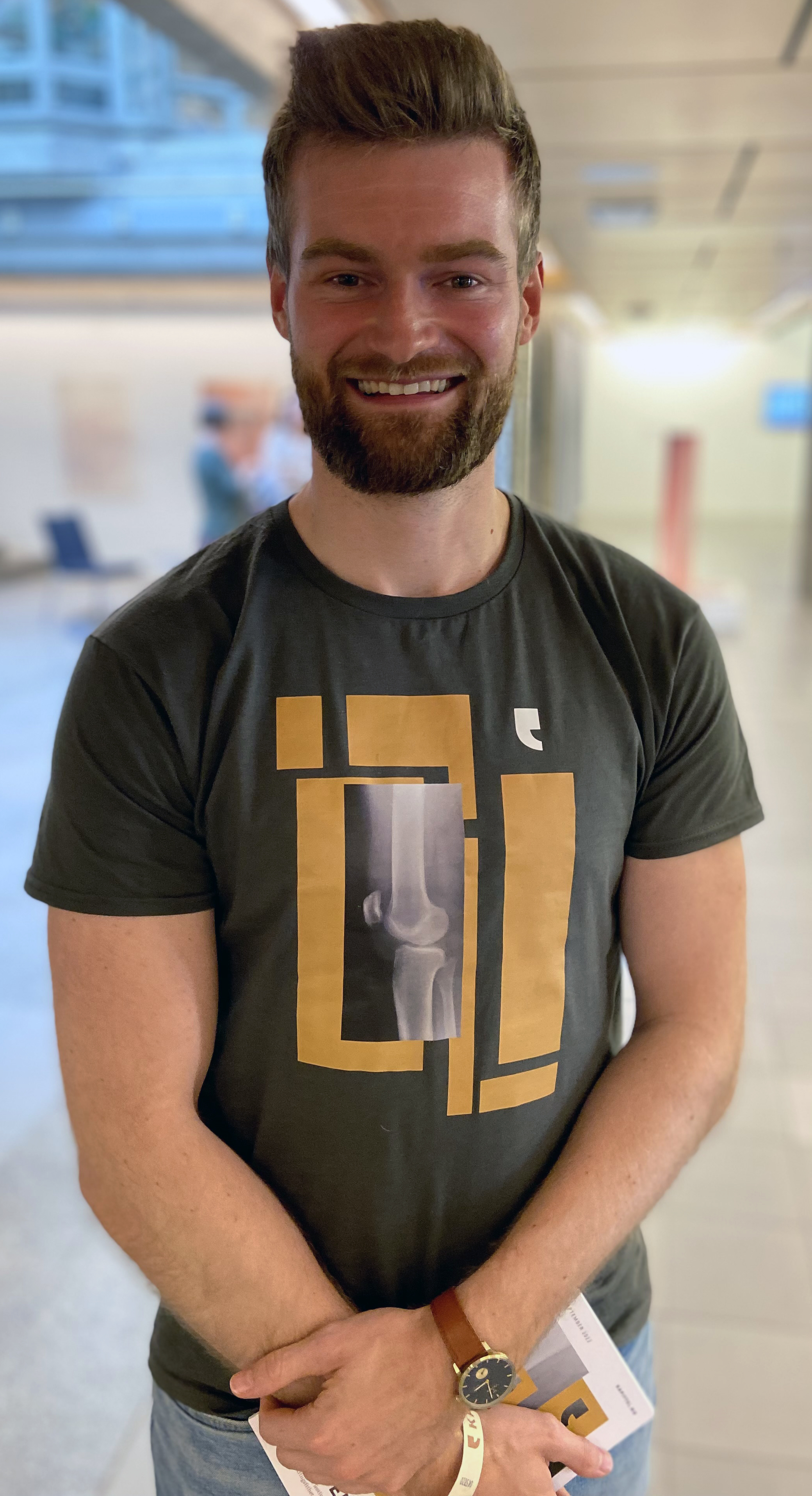This is a theme of interest to both the author Cathrine Knudsen and the artist Kari Telstad Sundet. The event, Science Fiction from the Welfare State was hosted by the Kapittel festival on the premises of the art exhibition CARING FUTURES at Sølvberget Galleri. Associate Professor Ingvil Hellstrand (UiS) led this conversation between the two artists before an eager and engaged audience.

The event started with Hellstrand reading an excerpt from the book "Kjærlighetsfragmentet" (The Love Fragment). The book is written by Knudsen, and takes place in the immediate future, in a world where one is assigned one's age after extensive health checks. Criticism of modernity is a central theme in several of her works, and she has clear opinions about the challenges we currently face in this context.
“We want to maximize our own lives, which in turn makes it difficult for us to accept that we ourselves will need care one day.” says Knudsen.
Challenges of artificial intelligence
Kari Telstad Sundet explained how her work "Memory Space Traveller" – an installation in the exhibition CARING FUTURES - depicts the relation between technology and care. It is a work combining music and video with a narrative voice that intermingles the human and machine elements. You cannot quite know where the human stops and where the machine begins.
Sundet linked the significance of her work to the ongoing debate about artificial intelligence, where computer systems that can learn from their own experiences and solve complex problems in different situations and environments.
“New technology should be implemented in care services with extreme caution. The algorithms that govern social media were introduced with the hope that people would spend more time on, for example, Facebook. They would use it and keep coming back to it. We realize now realize that these algorithms create moments that feed fear and that keeps us on the these platforms. That was not necessarily the intention of the person who created the algorithm, but it is the consequence.” says Sundet.

Multiprofessional interaction
As part of the Kapittel festival in Stavanger, the transfer value between art, literature and research is also central to this event. Knudsen highlighted the work of the artist in this context, that made us aware of how one can be so easily manipulated into certain states, though she also pointed out the importance of accepting one’s intuition and allowing oneself to be carried away by literature. Sundet expressed great faith in the transfer value between art and literature. While literature can use language more directly, art conveys what language cannot or adds detail that language cannot fully express.
“Certain elements cannot be perceived through language; they can only be perceived through sound or image. There are simply no words for these. We can address the same topic with and without words.” says Sundet.
An engaged audience

As the event came to a close, the audience had the opportunity to get involved and ask questions. An elderly lady had a question about how the voices of robots sound to the human ear. Sundet answered that a machine voice has its limitations since it does not capture human melody. She added that it was important to remember that robots simply follow a specific program and are devoid of feelings. Hellstrand agreed with her statement but challenged the notion of a clear demarcation between robots and humans.
“Do we only need ourselves? Technology can also contribute to expanding or developing humans” she said.
Another audience member brought up how difficult it is for humans to understand whether a machine has nuanced feelings and asked how we can relate to these entities.
Knudsen replied, “Making such fully automated machines will not be necessary or even financially viable. We only need robots functioning at a minimal level to meet our future needs. I don't see such advanced machines becoming widely available, she says.
The intersection between loneliness and new technologies
Once the event was over, the audience was encouraged to view the artworks in the exhibition. One of those who remained was Erlend Kvamsøe Gurvin, a volunteer at the Kapittel festival.
“This is very exciting. They have painted a dystopic picture of somewhat dangerous and scary care technologies, where the result is the loss of human resources. At the same time, we have an increasingly aging population. Should people sit alone, or should people have the option to sit alone with a robot that gives some basic emotional contact?
Gurvin stated that he was very happy to have such arenas for discussion so that attendees can reflect upon these issues and discuss it further in their circles. “Then we are in the process of creating change.” he concludes.
Text and photo: Eigil Kloster Osmundsen